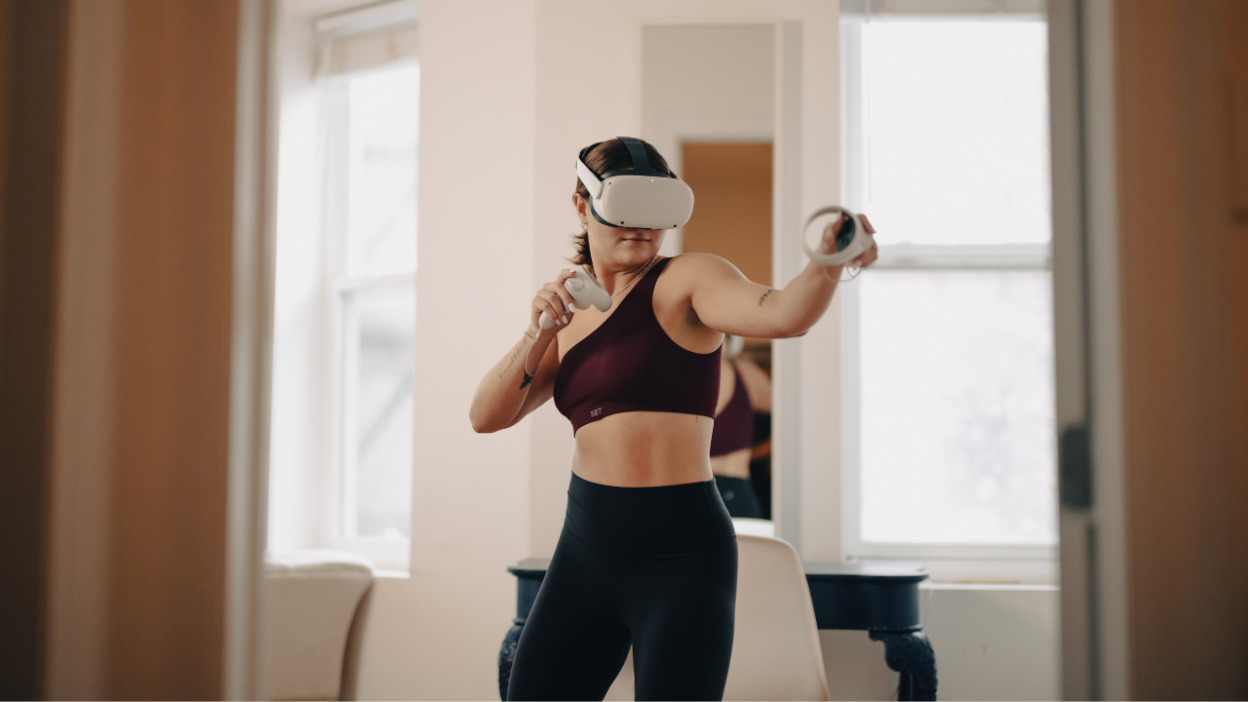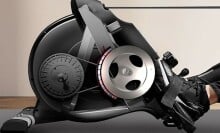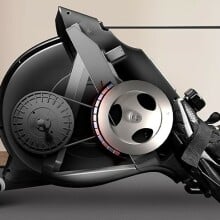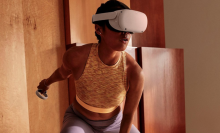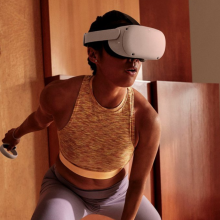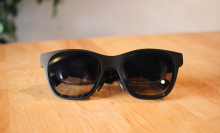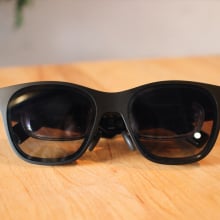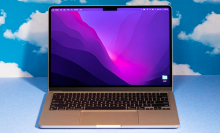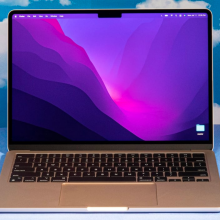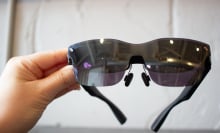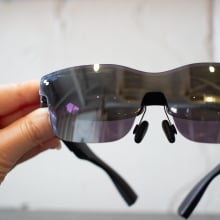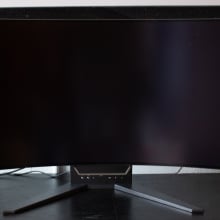As a former athlete, I’ve spent a lot of time trying different types of fitness. From running to powerlifting, CrossFit classes, martial arts, hot yoga, and more — there aren’t many things I don’t like when it comes to staying active. However, when it comes to home workouts, I find that I get bored easily, and — no matter how many apps and fitness programs I try — nothing hits quite like getting out of the house.
Obviously, the pandemic changed things. Running was my only solace until a nasty ankle injury left me searching for another option, and while my trusty exercise bike was great during my injury recovery, I also hated every second of it. So, when the opportunity to test the virtual reality experience, Litesport, I was eager to jump into the world of VR fitness and see if a game-like exercise experience was exactly what I needed to stay active at home.
What is Litesport?
Formerly known as Liteboxer, Litesport is branded as a “VR fitness experience” that offers boxing, full-body, and strength workouts — all within the convenience of your own home. Available on Meta’s Quest 2, Quest 3, and Quest Pro, Litesport boasts a library of more than 1,000 on-demand classes with options including mitt drills, boxing “punch tracks,” battle rope workouts, and strength training with real dumbbells.

While that might sound scary, especially for anyone familiar with other VR games and experiences, Litesport relies on augmented reality (AR) technology to create a mixed-reality experience that utilizes things like hand tracking to make these workouts, well, work. So instead of “doing” your workout in a virtual reality space, the headset allows you to keep seeing the same environment — like your living room — except now there’s a certified personal trainer leading the workout right in front of you.
Trying Litesport for the first time
I’m not going to lie, I was pretty thrilled to try Litesport. I’ve had a VIVE VR headset for years, and I still grin like an idiot every time I play Beat Saber. After trying the XREAL Air AR glasses, however, I was excited to don the Meta Quest 2 to try a more robust AR experience. And if it got me a good workout? Even better.
Straight away, I was pretty pleased with the Litesport experience. It was easy to get everything started, and — considering Litesport’s original offering was VR boxing — I quickly selected a trainer-led mitt drills workout to test everything out.
The easiest way to describe Litesport’s boxing is virtual reality meets Dance Dance Revolution. Armed with my headset and two controllers, there was a punching target in front of me that would light up as the trainer barked out a series of punch combinations to hit in sync with the music. While the lights were helpful, it took me a minute to get used to the punches — with each circle on the target corresponding with a different punch number — but before I knew it, my first workout was over leaving me eagerly jumping straight into the next.
What I loved about Litesport
As a former kickboxing instructor, there was something nostalgic about having a trainer shout out punch combinations for me in virtual reality. While it’s similar to shadowboxing, I was worried the experience wouldn’t quite be as satisfying without something physical to strike, but I was surprised by how easily I got into the groove.
The trainer-led boxing workouts and mitt drills were fun, exciting, and easy to search through — with different lengths, instructors, and difficulty levels available — meaning you could do back-to-back mitt drills or mix and match with other types of workouts available in Litesport for a more unique experience. Plus, thanks to Litesport’s partnership with Universal Music Group, there were plenty of great tunes to keep the energy up during your sweat sesh.
What I didn’t like about Litesport
I’ve seen a few other reviews of Litesport’s VR experience, so I know this might not be a popular opinion, but I wasn’t a huge fan of some of the other workout types. It was cool to try a mixed-reality strength training workout, letting me use real dumbbells with a virtual trainer, but I didn’t love the experience. Even though I’ve always been athletic, I’m pretty accident-prone, and the AR strength workout didn’t really feel like it “added” anything compared to following a workout video on YouTube or the Forme fitness mirror.
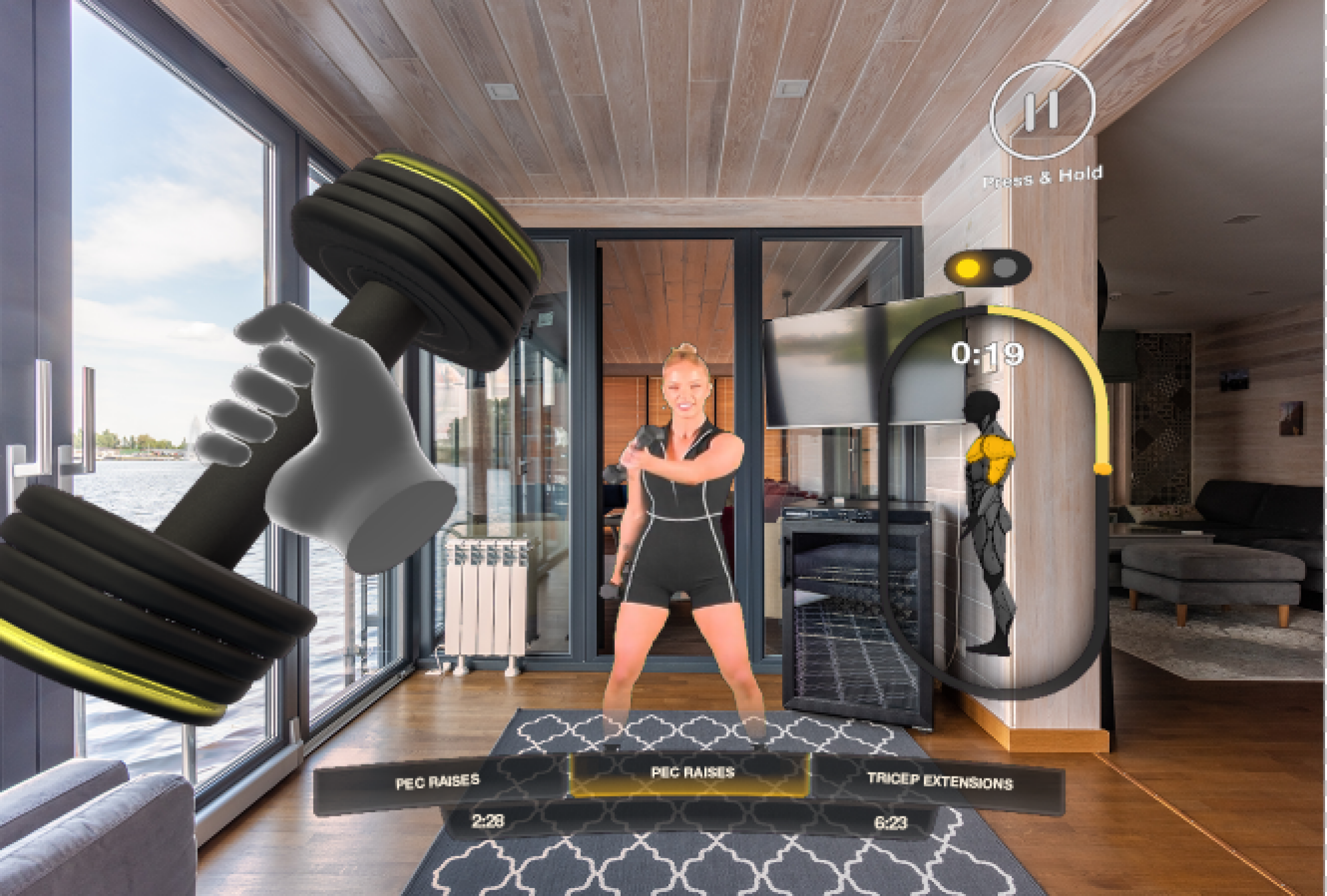
The total body workouts felt reminiscent of Beat Saber, but I felt like I was sacrificing proper form to keep up with the speed of the workout. Instead of a fun game that kept me active, I couldn’t wait for the total body workout to be over. And even though I loved the boxing workouts and mitt drills, the punch tracks weren’t great for me either. They got boring and repetitive faster than I thought, so I found myself gravitating to the mitt drills each time I picked up the VR headset.
Unfortunately, the more I played around with Litesport, the more frustrated I got. The experience was buggy here and there, with certain screens freezing, and I had to restart the app more than once. There were parts of Litesport that were ridiculously fun and a great workout, but at $18.99 per month for a premium membership, I wasn’t as impressed as I’d hoped.
Is Litesport VR worth it?
If you already have the headset, it’s definitely worth the free trial — but I’m on the fence about the premium membership. There is a standard plan for $8.99 per month, but is has a lot fewer workouts available.
For some people, Litesport might be exactly what you need to get active at home. It’s fun and unique, there’s a good amount of workout variety, and other people might enjoy the total body and strength training workouts far more than I did.
For me, however, the whole experience fell flat. I found myself wishing I’d discovered it back when it was still Liteboxer, so I could just stick to the parts I enjoyed. And while the monthly subscription is less than a gym membership, it paled in comparison to other workout subscriptions like the Peloton app when it comes to workout quality and the size of the workout library.
Litesport clearly tried to do something incredibly ambitious by bringing a robust workout experience into VR, and while it’s definitely got potential, the current experience doesn’t quite meet the mark.
